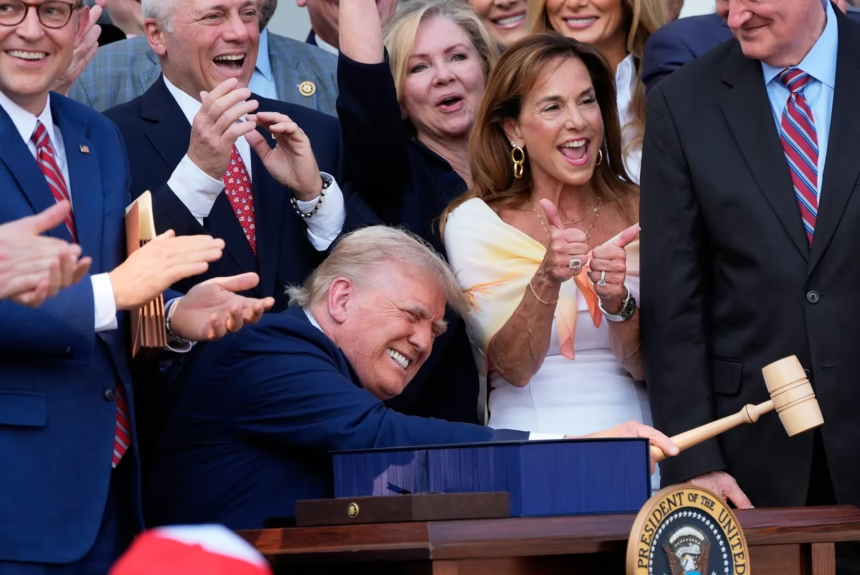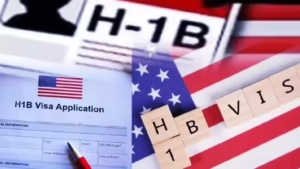President Donald Trump is preparing to implement, on Friday, a significant policy change that could substantially impact the U.S. economy and international skilled workforce mobility.
A White House official, speaking to CNN, revealed that the executive order will mandate a $100,000 fee for each H-1B visa application.
The initiative, characterized as a response to what the administration termed “abuse of the H-1B pathway” that has “displaced U.S. workers,” represents one of the most dramatic measures in Trump’s intensified immigration enforcement strategy, CNN reported. The network did not specify the party responsible for covering the new fee.
The H-1B visa program, essential for numerous American corporations, enables qualified international professionals to occupy positions in vital industries, notably in the technology sector.
The visa, which remains valid for three years with one renewal option, is granted annually to 65,000 candidates, plus an additional 20,000 slots reserved for U.S. university graduates, according to statistics referenced by CNN.
The implementation of such a substantial fee could severely limit access to the program.
According to CNN, the White House official indicated that the executive order aims to restrict H-1B visa usage “unless accompanied by the payment.”
Industry experts suggest this decision could significantly diminish the competitive edge of many businesses, particularly technology firms, which maintain that the H-1B program is crucial for recruiting specialized expertise not readily found in the U.S.
Trump’s position regarding the program has fluctuated between acceptance and limitation.
During the 2024 campaign, he indicated he might “give some foreign-born workers legal status if they graduated from a U.S. university.”
However, he repeatedly criticized the program, asserting that companies utilize it “for the explicit purpose of substituting for American workers at lower pay,” an accusation he first made in 2016.
Yet in December, Trump expressed different sentiments. “I’ve always liked the visas, I have always been in favor of the visas. That’s why we have them,” he told the New York Post, as reported by CNN.
This alternation between endorsement and opposition reflects the complexity faced by a president balancing powerful economic interests with an immigration-skeptical voter base.
Economic pressure and political divisions
The proposed fee has not received unanimous support, even among Trump’s supporters.
The policy announcement follows internal discussions triggered when prominent business leaders Elon Musk and Vivek Ramaswamy — who briefly headed the Department of Government Efficiency — voiced support for the H-1B program.
Their statements drew fierce criticism from some of Trump’s core supporters, who had anticipated stricter controls on legal immigration.
Economic experts warn about potential long-term adverse consequences. Many contend that the H-1B program not only enhances U.S. corporate competitiveness but also creates additional employment opportunities within the United States.
This fee implementation echoes restrictive measures enacted during Trump’s previous administration. In 2020, amid the COVID-19 crisis, H-1B visa accessibility faced multiple restrictions as part of broader initiatives to constrain legal immigration pathways.
Following his return to presidential office, Trump has intensified his approach toward professional immigration regulation, frequently implementing policies that appear inconsistent with his public declarations.
According to CNN’s reporting, this latest measure represents one component of “a series of efforts from the administration to crack down on immigration,” directly affecting sectors that substantially depend on international workforce.
The anticipated Friday signing is expected to generate significant opposition on both legal and political fronts.
The tech sector, which constitutes the primary beneficiary of the H-1B program, is anticipated to mount substantial resistance, emphasizing their critical need to recruit international talent to address specialized workforce deficits across the United States.
https://ctninfo.com/?p=36968&preview=true







